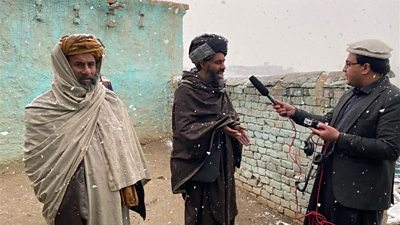Downloads
Publication date: August 2021
The COVID-19 pandemic has disrupted social, economic and political lives all around the world. Afghanistan's weakened public health-care system, widespread poverty and instability, and low levels of good hygiene practices among the general population left its people particularly vulnerable to the epidemic.
Â鶹ԼÅÄ Media Action, funded by the UK's Foreign, Commonwealth and Development Office through Unilever, ran communication campaigns in Afghanistan and Somalia between October 2020 and March 2021, encouraging people to follow preventive behaviours to help reduce the chance of contracting and spreading the coronavirus.
Seventeen video and 18 audio public service announcements (PSAs) were distributed on TV, social media, and radio, featuring a little girl and her family. The child urged everyone to follow preventive behaviours to reduce the chance of catching the coronavirus and escape the potential fate of losing loved ones, like she had, losing her father to the virus. Six PSAs were produced in Dari, Pashto and Uzbek languages, distributed across national and local radio and TV stations as well as on Facebook. We produced 40 five-minute episodes of a 'fast fiction' radio drama focused on the nomadic Kuchi population and distributed on radio, interactive voice response (IVR) and on Facebook.
The survey has shown that approximately 7.6 million adults have listened to or watched at least one of the PSAs or drama episodes (46% of the Afghanistan’s adult population).
Our formative research and pre-testing of media content identified structural and cultural barriers that people faced when trying to protect themselves against COVID-19. For example, men especially felt physical distancing was difficult to practice as it was culturally unacceptable to reject someone’s hand or to hug when greeting them. In both countries, people were often more concerned about the impact of poverty and unemployment, conflict and the threat of violence on their families than they were about COVID-19.
This research informed development of media content in both countries as understanding audiences' values and what engages and motivates them is key to producing effective communication.
To read more about the research in Afghanistan, please see our reports above.
Further research and project information
-
Hygiene Behaviour Change Coalition Using media to help reduce transmission of the coronavirus in Somalia
